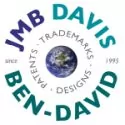The following information will be of interest to IP owners who would file patent applications in Israel, if it could be shown that the Israel patenting procedure is painless.
THE FACT IS, patenting in Israel is potentially one of the most painless patenting procedures in any developed, western economy. Here's why:
For overseas applicants, in general, and for US applicants in particular, the process of obtaining patent registration in Israel can, in many cases, be inexpensive and relatively short. This is due to three factors, which are as follows:
- Modified examination - in accordance with Section 17 of The Patents Law (5727-1967) of the State of Israel (2nd Amendment) 5755-1995 (see explanation below);
- Accelerated Examination - Sections 34 and 35 of the Patents Law, 5727-1967, (Regulations concerning Office Practice, Procedure, Documents and Fees) (see explanation below); and
- Accession to the Patent Co-operation Treaty by the State of Israel, effective June 1, 1996.
The above three factors can be combined, in appropriate cases, so as to enable the pendency of a patent application based on a granted US, European, Austrian, German, Danish, UK, Norwegian or Swedish patent to be reduced to as little as 6-12* months; the total cost of obtaining patent registration (from filing until grant, inclusive) is unlikely to exceed about $1500, in most cases.
* Under Israel practice, an allowed patent is laid open to public inspection for three months for opposition. The figure of 6-12 months does not include any delay of grant that may be caused in the case that an opposition is filed.
Modified Examination
Paragraphs 17(c), (d) & (e) of the above-referenced 1995 amendment to Section 17 of the Israel Patents Law enable application to be made in Israel for a patent to be granted, inter alia, on the basis of a US, European, Austrian, German, Danish, UK, Norwegian or Swedish patent ("corresponding patent") granted on a foreign application having a convention priority linkage with the Israel application, provided that (a) all claims in the Israel application are identical to at least some of the claims in the corresponding patent, and (b) the description and drawings are either identical to those of the corresponding patent or otherwise fulfill the sufficiency of disclosure requirement (as per paragraph 12 of the Law).
Accelerated Examination
Paragraph 34(a) of the Regulations states that applications shall be examined, in the order in which they were filed. Notwithstanding this provision, paragraphs 35(a) and (b) of the Regulations provide for expedited examination in justifiable circumstances. The official English language version of the Regulations states as follows:
"35. (a) An applicant who has reasonable cause for doing so may submit to the Registrar a reasoned request, accompanied by the prescribed fee, for the immediate examination of the application.
(b) Where it appears to the Registrar that a request under subregulation (a) is well-founded, the examination shall be carried out as soon as possible after the date of the request..."
In practice, once a request for accelerated examination has been processed (this will normally take only a few weeks) prosecution begins very soon after, or even concurrently with an official notification from the Patent Office informing the applicant that his request has been granted.
While Israel practice provides for a (theoretically) unlimited number of rounds of prosecution, accelerated examination is characterized, not only, by commencing within a few weeks of the filing date, but also, by the Examiner reducing the time between the filing of an amendment by the applicant, and issuing of a next office action (or Notice of Allowance.)
Conclusions:
With the accession of Israel to the PCT, many potential overseas applicants have stopped filing directly in Israel at the end of the 12 month Convention period, and have instead begun designating Israel in their PCT applications. While this may be expected per se, as it potentially defers all filing decisions concerning Israel to the end of the 20 or 30 month PCT term, it also provides what may be an unexpected bonus, especially to (1) patentees in fields whose technological advances have short to medium life spans, and (2) patentees whose inventions may be easily and cheaply replicated.
Both type (1) and type (2) patentees, filing an Israel National Phase application, may benefit from the above-mentioned "modified" examination, particularly if the priority applications (or applications having a common priority) were made in countries, such as, the US or UK, in which grant may be expected by the end of Chapter II of the PCT.
Furthermore, bearing in mind that both of these types of patentee will, in many cases, be overexposed in the Israel marketplace in the absence of a registered patent, it is possible to provide a well-founded reasoned request for expediting examination, as per Regulation 34, above. (In Israel, many cases are expedited for economic reasons, so as to enable patentees to be in a position to enforce their rights soon after their products or technology receive public exposure.)
It is thus apparent that, in a case based on a corresponding patent (as defined above), in which both accelerated examination has been granted, and for which a request for modified examination has been made, the delay before commencement of prosecution will be minimal, and the time taken by the overall prosecution is likely to be relatively short. It is thus quite likely that the time between an Israel National Phase filing and grant will be considerably less than one year. Furthermore, as prosecution costs in such a case will almost certainly be very low, the overall costs incurred from filing until grant (if no opposition is filed) should generally be no more than about $1500.
Notwithstanding the existence of the PCT route, it is the case, nonetheless, that many non-PCT patent applications are also filed in Israel. In these cases, too, modified examination (with or without accelerated examination) may be requested after a corresponding patent has been granted. Even in cases in which accelerated examination is requested in absence of modified examination, however, this procedure can still be expected to produce patent grants within a year or so from the filing date.
PLEASE NOTE: According to amended Section 17, the Israel patent application for which a modified examination may be requested (on the basis of a corresponding patent in the USA or the UK, for example), will be one which fulfills one of the following conditions: (1) the Israel application claims priority from the patent application on which the corresponding patent was granted; (2) the corresponding patent claims priority from the Israeli application; or (3) the Israel application and the corresponding patent both claim priority from a different patent application.
The above general information is provided as a service only, and professional advice, over and above this information, should always be sought when considering specific applications or technology.

